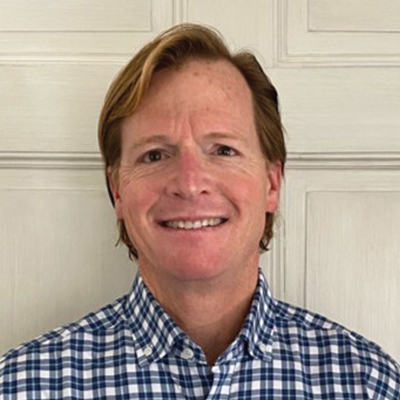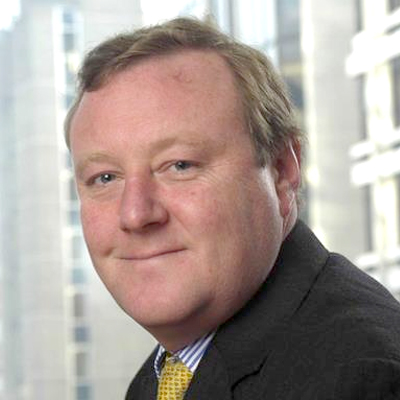Reinsurance
Bermuda’s Vantage and Conduit Re Enter Market With Clean Slates and Veteran Staffs
Vantage and Conduit bet a combination of experience, technology and grit will allow them to sidestep the low interest rate environment that has crimped the entire industry.
Key Points
- Conduit: Underwriting began with Jan. 1 renewals and the company reported $160 million in new business by the following month.
- Vantage: Chris McKeown, CEO of reinsurance, innovation and insurance-linked securities, said the firm’s executive team hasn’t even met in person due to the COVID-19 pandemic but the challenges make the company stronger and more nimble.
- Common Point: Both companies are betting on seasoned teams operating without the baggage of the past to make them stand out in the reinsurance world.
If “2020” can be used as an adjective, then last year was very 2020 for Christopher McKeown.
He and others spent the better part of the year planning Vantage Group Holdings Ltd. before it launched a reinsurer in December as the world struggled to deal with fallout from the COVID-19 pandemic. Even though as CEO, reinsurance innovation and insurance-linked securities, he is one of the company's top executives, he has yet to meet the entire management team in person. The company cobbled together a staff in a series of remote video chats. It's domiciled in Bermuda, but there's no headquarters there yet and he conducted a recent video interview from Massachusetts.
“We've done it all just like you and I are doing,” he said. “So that's been interesting.”
Vantage and fellow newcomer Conduit Re opened shop in 2020, arguably the weirdest and most uncertain year in a long time. As reinsurers, they are betting freedom from the past will make them less exposed to low interest rates and that capacity is growing at the same time the demand for their product is growing. Both are domiciled in Bermuda.
Vantage has people scattered over Bermuda, Chicago and New Jersey, McKeown said. At some point, there will be a return to normal life with offices and such but for now the company is OK with how it's leveraged the tools at its disposal. Vantage Group's rated entity, Vantage Risk Ltd., has a current Best's Financial Strength Rating of A- (Excellent).
“We have people sort of all around and we may not have been able to hire them if we said we're here in this spot and you need to look to move,” McKeown said. “We're going to look to take advantage of that going forward.”
The conceptualization of Vantage started pre-COVID-19 and was based on the idea that balance sheets were simply becoming too cumbersome, bureaucratic and laden with business written in a low interest rate world to face the opportunities of the foreseeable future, he said.
“Then COVID happened, so there were COVID losses channeling through the system and then other losses happened—wildfires, a derecho and hurricanes,” he said. “That just really crystallized the moment even further that capacity would be constrained and somebody with new capital, but experienced management and a new product hopefully built on technology, would be welcome in the marketplace.”

What we saw in 2020 is despite the fact that the market is well-capitalized, capacity hasn’t changed very much.
Carlos Wong-Fupuy
AM Best
Old Guard Disruptors
While Conduit and Vantage may be new names, neither is purely looking to disrupt the industry with a new model. Rather, they can be thought of as identifying opportunities within the market and also how a new entrant into the market can marry the old and the new in a way that addresses shortcomings. This comes at a time when older companies are juggling the need for growth against older technology and financial underpinnings.
In both cases, the companies were started by industry veterans with decades of experience who are betting a thick Rolodex and years of building relationships will help them transition and grow. Conduit, for instance, plans to write $492 million in business in 2021 and expects that to grow to $900 million in five years.
For Vantage, that means being led by Chief Executive Officer Greg Hendrick and Chairman Dinos Iordanou. Hendrick has spent three decades in the industry and is the former CEO of Axa XL. Iordanou, who notched a standout 40-year career in insurance and is the retired president and CEO of Arch Capital Group Ltd., is Vantage's nonexecutive chairman. Along with McKeown, the leadership team includes Jack Kuhn, CEO, insurance; Aurora Swithenbank, chief financial officer; Peter Hahn, chief data and analytics officer; and Gail McGiffin, chief information and operations officer.
Vantage Risk provides property catastrophe reinsurance, mainly covering North America, Europe, Japan and Australia, as well as specialty reinsurance across property/casualty classes including marine, energy, aviation, crop, workers' compensation, property per-risk and mortgage. Private equity firms Carlyle Group and Hellman &Friedman, along with management, have invested $1 billion in Vantage with the possibility of additional funding.
For Conduit Re, founders Neil Eckert, executive chairman, whose career began in 1980, and Trevor Carvey, the chief executive officer, each brings more than three decades of experience to the table. Eckert founded Brit Insurance in 1995 and remained its chief executive officer until 2005, after which he was a nonexecutive director of the company until 2008.
In December, Conduit raised £826 million (US$1.10 billion) in an initial offering on the London Stock Exchange and the company booked about $160 million in gross written premium during the January renewal season. Conduit Re has a Best's Financial Strength Rating of A- (Excellent).

COVID happened, so there were COVID losses channeling through the system and then other losses happened—wildfires, a derecho and hurricanes. That just really crystallized the moment even further that capacity would be constrained and somebody with new capital, but experienced management and a new product hopefully built on technology would be welcome in the marketplace.
Christopher McKeown
Vantage Group Holdings Ltd.
Clean Slate
Eckert said he and Carvey began discussing the possibility of starting Conduit Re after seeing a market that was softening from 2006 onward. From 2015 to 2018-19 the market started to harden as the world saw several of the worst consecutive catastrophe loss years in history. Also, he said there were over $300 billion in catastrophe losses against a reinsurance market capitalization of about $600 billion.
The market is under-reserved and there's a casualty hole of between $100 billion and $200 billion, Eckert said. He pointed to results that companies put out earlier this year as proof that many companies need to increase their general reserves and those for COVID-19.
“That means basically that there's loss-fatigue setting in and they were the conditions that enabled us to go to the stock market and say right now was the right time to start with a clean slate and get the company up and running,” he said. “If we were a new entrant to a soft market, we wouldn't have the business we've seen.”
Conduit often uses the clean slate description. Carvey said older carriers faced both a drain on balance sheets and the inability to tailor older technology to exactly what they want and need to do in the future.
“We are starting from scratch with a clean slate. That's the important point. The others are encumbered by legacy, back-year drag,” Carvey said. “Obviously, we're not suffering from the under-pricing and poor reserving that's gone on, particularly in the casualty market, for the better part of the last 10 years.”
Tristan McDonald, head of strategy and London CEO, pointed to recent winter storms in the U.S. that left 38 of the 48 contiguous states with snow cover simultaneously during the winter as evidence of the impact of climate change on the industry. “That's a record since record-keeping began,” McDonald said. “Add to that the devastating impact of snow and ice on poorly prepared Texas and you've got a meaningful event.”
But Conduit Re isn't simply hanging out its sign and looking for customers to come calling. Eckert said the level of experience and track record of the management team filters out to all levels. The firm will be aggressive in seeking out business and relationships forged before now will be key.
Most of the high profile startups have come from the world of insurtechs, technology-focused startups such as Lemonade and Root. In some cases, the founders come from outside the world of insurance.
“Reinsurance brokers like trading with people they know; they like people who will give them an efficient response and they like to be operating with people who are close to the decision-makers,” he said. “It's really important and certainly from the show of business we've had, it's worked.”

There was over $300 billion in catastrophe losses against a reinsurance market capitalization of about $600 billion. “That means basically that there’s loss-fatigue setting in and they were the conditions that enabled us to go to the stock market and say right now was the right time to start with a clean slate and get the company up and running.”
Neil Eckert
Conduit Re
Flood of Capital
In a recent Best's Special Report, London and Bermuda Attract Capital as Insurance Market Conditions Improve, AM Best found 2020 saw a slew of capital-raising activity from both existing insurance players and startups looking to bolster balance sheets and to take advantage of perceived improvements in pricing and conditions.
The report found at least 16 new and existing insurers in London and Bermuda raised capital in 2020. In recent years, the emergence of collateralized reinsurance vehicles, referred to as sidecars, along with growth in insurance-linked securities has given third-party capital an efficient way to move in and out of the market, dampening expectations of a swathe of new formations like the bumper classes of 2002 and 2005.
The money came from a mix of private equity, industry capital and public placements, but the common theme was investors looking to protect balance sheets and diversify amid the uncertainty caused by COVID-19.
Bermuda and London market insurers have been able to raise equity with relative ease, the report found. They have also found the debt markets receptive: in spite of higher credit spreads they've been able to issue debt at relatively favorable rates. That suggests investors are confident the insurance industry is a solid bet in the near-term despite claims of uncertainty around COVID-19, social inflation and catastrophe exposure.
Going into 2021, there was considerable optimism in respect of pricing, particularly in commercial lines and reinsurance, AM Best said. Rates in a number of lines of business continue to harden as the market responds with increased underwriting discipline to adverse claims experience driven by social inflation in the U.S., COVID-19-related losses and, in recent years, elevated catastrophe experience.
“There was an expectation that the market was going to start hardening and that already started last year, led mainly by the primary segment and specialty lines,” said Carlos Wong-Fupuy, senior director, AM Best and one of the report's authors. “COVID has simply exacerbated that because the uncertainty we've had about the impacts that the pandemic was going to have on cat losses adds to pricing uncertainty.”
At the same time, the appetite on the part of investors has grown in a search for yield while they've also become increasingly selective about where they choose to put their money, Wong-Fupuy said. In fact, he said AM Best and Guy Carpenter jointly estimate capacity for the market is around $485 billion, which includes almost $90 billion of third-party capital.
“What we saw in 2020 is despite the fact that the market is well-capitalized, capacity hasn't changed very much,” he said.
COVID-19 and the initial market reaction in late March and April of last year, coupled with falling interest rates took a toll on insurers across lines, said Colin Devine, operating partner, Health Catalyst Capital. Looking at new firms, whether reinsurers like Conduit and Vantage, or insurtech startups, there are two solidarities as he sees it: they don't have legacy technology and don't carry the financial burden of legacy liabilities.
For the industry, the conditions of recent years made reinsurance, business spin-offs or sales to private equity more attractive to primary carriers by allowing them to divest blocks and lines that otherwise aren't running at profits they'd like to see. In some cases, the capital cost of maintaining them can be halved because they can operate at much lower RBC ratios, he said.
“The catalyst for that has been low rates and trying to get things off your books,” he said. “The decline in rates also exposes expense inefficiencies because they're running these old legacy IT systems. So you've got to find another solution to try to keep yourself making money. In steps reinsurance, spin-off or private equity transactions.”
McKeown, of Vantage, has an expression he likes to use—flatter, faster and fiercer. Coupled with a sense of identity, that is what will distinguish the firm from older and larger competitors, he said.
“That will give us an advantage and we will not have expense being driven by legacy issues whether it's legacy reserves, legacy technology, or legacy lines of business,” he said. “We will choose very selectively the lines we want to get into and we won't try to be all things to all people.”